An interview with Leonor Espinosa, the World’s Best Female Chef of 2022
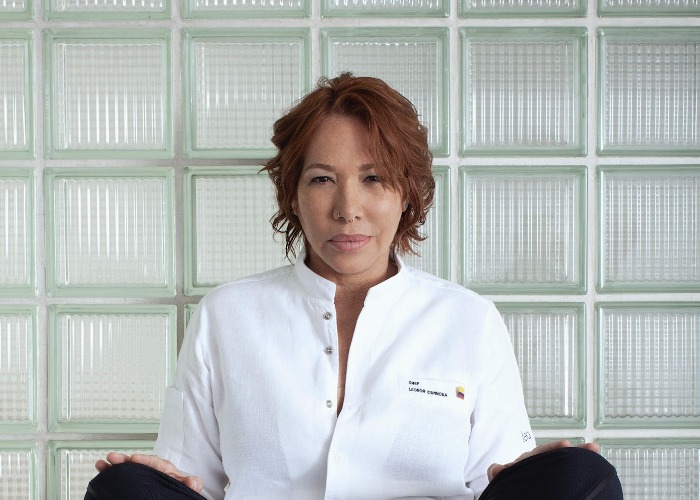
The World’s Best Female Chef 2022 on getting Colombia recognised globally for the richness of its gastronomy, collaborating with local communities and helping to raise the profile of women in professional kitchens.
When I first heard the news that Leonor Espinosa, award-winning chef and social entrepreneur, was being awarded the title "The World’s Best Female Chef 2022", I knew that this was an important moment for Colombia’s fine dining scene. As a Colombian woman and former chef, I felt like I had been waiting for this moment. This award is a recognition of years of arduous work by chefs, food producers and restaurateurs to highlight the rich biodiversity of Colombian gastronomy and share it with the world, and no one has fought harder for it than Leonor Espinosa.
Espinosa isn’t shy when it comes to speaking about the challenges she has faced to reach these accolades, but she doesn’t like being quoted. She speaks colloquially, she says, and sometimes people misunderstand her candour, which is why she doesn’t do many interviews. As we sit down in her restaurant in Bogota, I feel like I'm met with a level of trust and honesty that she wouldn't share with everyone.
She's refreshingly direct and warm, but slightly intimidating. I like that about her – we need more women in the culinary industry who aren’t afraid to speak up and own their space. As I am ushered by the maitre to the best table in the house, where I'm served a cup of great Colombian coffee, Espinosa arrives, requesting reservation numbers from the maitre and asking for the music to be changed as she doesn’t particularly enjoy the current tune. She then begins to tell me about the journey that got her to this accolade.
Who is Leonor Espinosa?
Leonor Espinosa, or Leo as she is affectionately known, didn’t start her career in a kitchen. She was an artist for many years before she began cooking. Espinosa recalls how at the beginning of her culinary journey no one took her seriously. How was she going to become a chef when she had never even gone to culinary school? But over the past three decades she has proved to everyone that she is more than a cook – that she is still an artist who has just decided to change her medium from plastic arts to food.
Since then, Espinosa has collected a series of impressive accolades. She was named Latin America’s Best Female Chef in 2017 and was also awarded the Basque Culinary World Prize for FUNLEO, her socio-environmental foundation, which she runs alongside her daughter Laura Hernández. Hernández is also head sommelier at Leo, Espinosa’s signature restaurant that ranks in both The World’s and Latin America’s 50 Best lists. In 2020, she was selected for Latin America’s Chefs' Choice prize and this year she was named The World’s Best Female Chef.
For Espinosa, this award is about her entire team and the people who have been working for years for Colombia to be recognised globally for the richness of its gastronomy, biodiversity and, most importantly, the different ethnic communities that make up the country. She herself has extensively travelled in search of a deeper understanding of Colombian cuisine, especially in regions that seem to have been forgotten by the rest of the country.
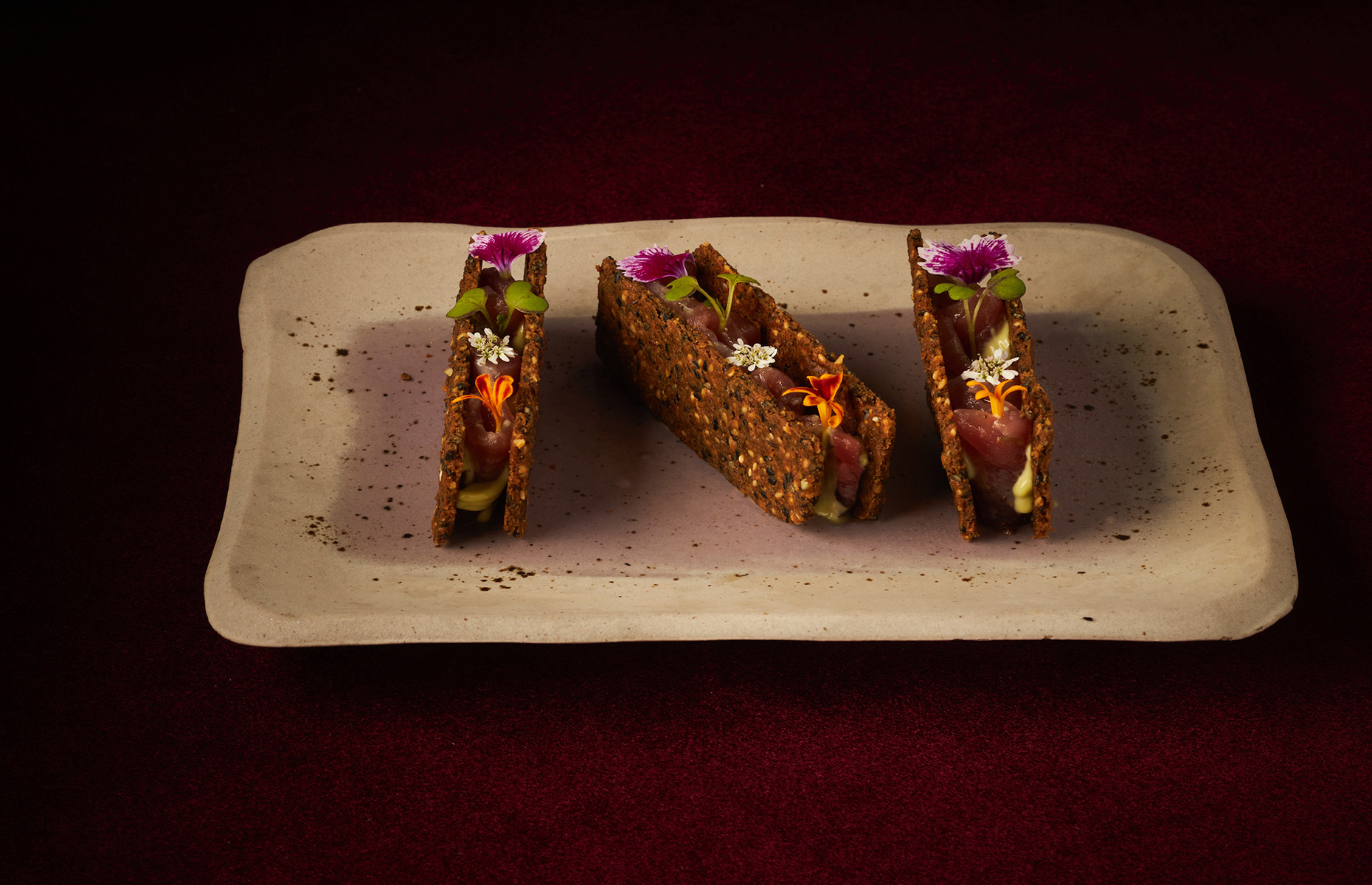 Tuna, caramelised coconut rice, sesame and myrtle at Leo (Photo by: Jorge H. Gonzalez, @JorgeZona)
Tuna, caramelised coconut rice, sesame and myrtle at Leo (Photo by: Jorge H. Gonzalez, @JorgeZona)
“I spent 10 years of my life travelling, kneeling on the ground and cooking on pits on the floor with these communities, and I went to places where not even the Government would,” Espinosa recalls.
Colombia has struggled with internal conflict and guerilla warfare for the past 50 years, leaving rural and poor populations without support from the Government and bountiful regions of the country controlled by the FARC guerilla group. The conflict came to a rocky end in 2016 when a peace treaty promised a ceasefire yet, to this day, the terms of this agreement are still being negotiated.
In the midst of the hostility, Espinosa and Hernandez founded FUNLEO, working to revive ancestral gastronomical knowledge in rural Colombian communities, many of which were hit hardest by the war.
She has faced some criticism for this work, claiming that she has culturally appropriated recipes used in her restaurant. To this, Espinosa says that none of the dishes that she serves in Leo are a direct copy of a traditional recipe, but instead her dishes are her interpretations of local cuisine.
“I did the work because these recipes, these cultures, need to be seen, and we’ve put in the work to talk to them, support them and help keep their culture alive,” she says.
Espinosa’s FUNLEO has collaborated with local communities to create Zotea, an Integral Culinary Centre in a community of the Chocó region in the Colombian Pacific, one of Colombia’s most biodiverse yet poorest regions.
In one of the communities the Zotea project worked with, Espinosa recalls starting with 15 women who were home cooks with an incredible amount of culinary knowledge – “seasoning masters” – and they now run a hotel and restaurant that shares Colombian food with visitors.
“Colombia is a country of a thousand cuisines”
It is hard to describe Colombian food to foreigners. When I ask Espinosa what she believes Colombian food is, she laughs. “Colombia is a country of a thousand cuisines,” she explains. "We have two oceans, two deserts, three mountain ranges, seven different climatic zones, two jungles and two valleys. Different cultures intervened in our kitchens. Colombia is too rife to be defined by one dish.”
The country's vast array of cuisine includes regional variations of dishes such as arepas (corn patties usually eaten with cheese that are enjoyed grilled or fried), tamales and envueltos (dishes wrapped in palm or plantain leaves), and the traditional distilled and fermented alcoholic beverages of every region, to name just a few.
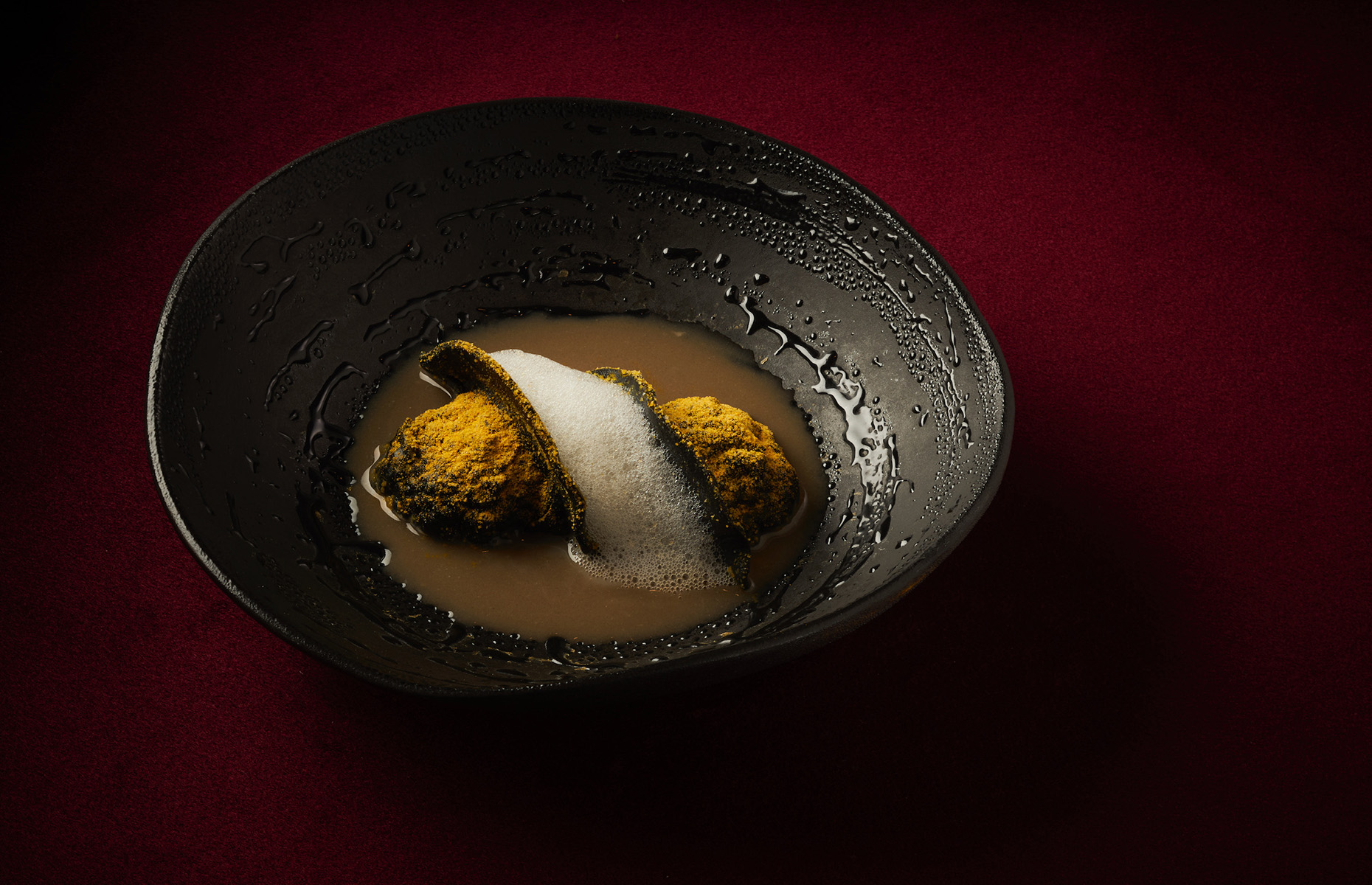
Crab, galangal, chontaduro, crustaceans at Leo (Photo by: Jorge H. Gonzalez, @JorgeZona)
Unfortunately, Colombia is a country that still struggles with its own identity. Colonialism has left its traces everywhere, the nation’s pantries left whitewashed. It is often easier to find restaurants that serve European food than it is to find some local ingredients. Espinosa wants to change that. She prioritises using small local producers, featuring products from small distilleries and artisans in her restaurant’s dishes.
Award-winning restaurant Leo
Leo is Espinosa’s newly refurbished concept, which she revamped during the coronavirus pandemic. Divided into two different spaces, El Salon de Leo – Leo’s room – and El Salon de Laura – Laura’s room – the restaurant serves creative dishes inspired by Colombia’s local ingredients.
Leo’s room is stunning. An open kitchen leads to a grand space, with high ceilings and concrete floors, decked with wooden accents and black steel touches. The restaurant is speckled with beautiful clay decanters filled with fermented drinks made from botanical ingredients typical of local cultures. The food consists of two different extensive tasting menus that explore experimental Colombian cuisine – “contemporary art,” says Espinosa.
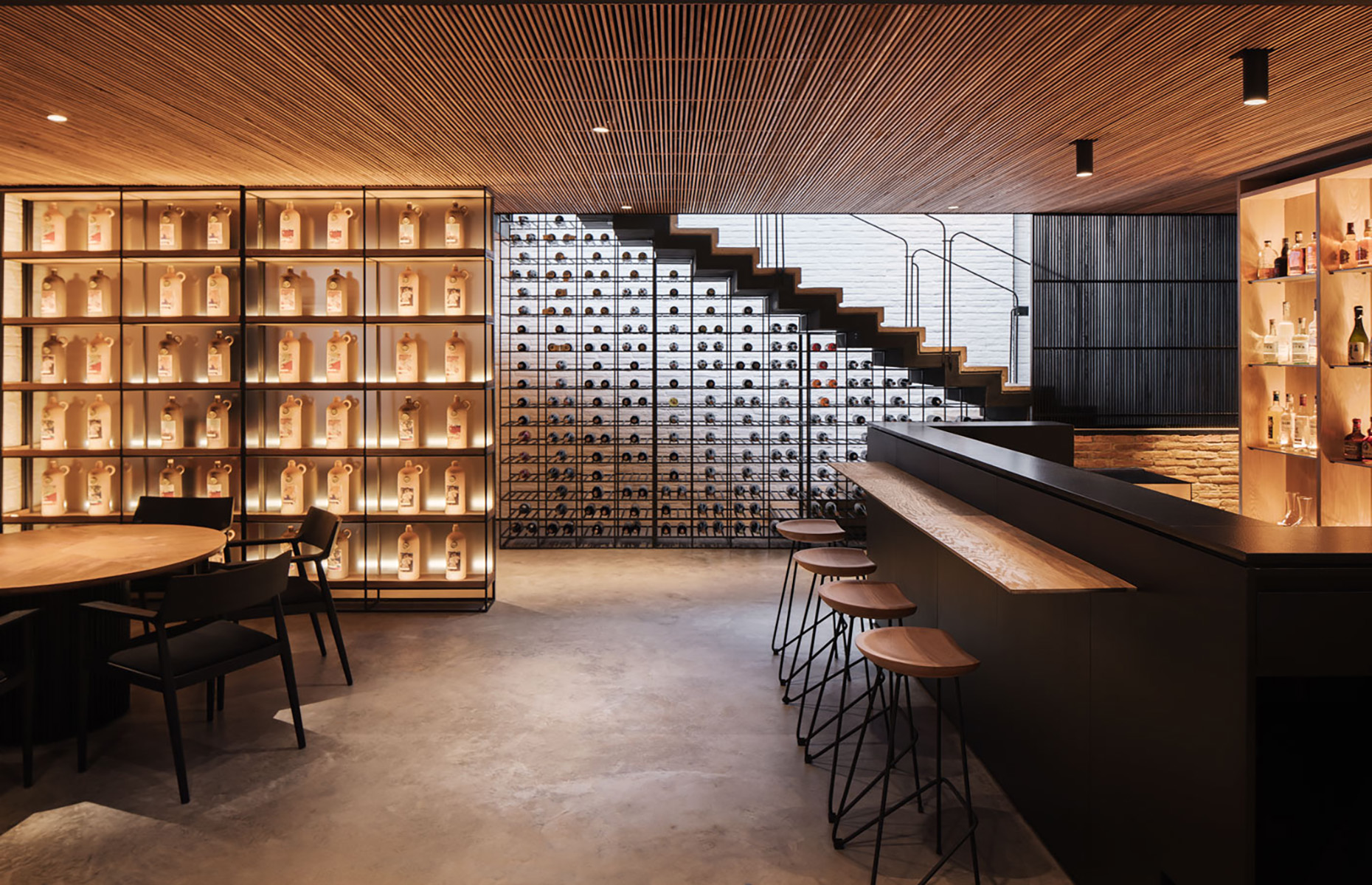
Leo Restaurant (Photo by: Simon Bosch, @simonboschphotographynl)
Upstairs, Laura’s room, named for Espinosa’s daughter, offers a more vibrant theme with burgundy chairs and livelier music and serves two tasting menus, à la carte dishes and a Colombian Innovation Cocktail Bar.
The menus display a map of Colombia, so customers can see the source of every ingredient. The menus aren’t listed online; to eat at Leo is to trust the unexpected, as Espinosa doesn’t want people to come with a preconceived idea of what they will taste.
The importance of recognising the work of female chefs
I ask Espinosa if working with her daughter is a result of Colombia’s matriarchal food traditions which transcend from mother to daughter, ensuring the family legacy is maintained. “Laura is not a cook,” Espinosa explains. Instead, what they share is a passion for the social work they do with local communities to ensure that biodiversity becomes a tool of growth. “Us finding a way to do it together was the most beautiful coincidence," she adds.
That is exactly why more women need to be recognised in the fine dining industry, to highlight that great food doesn’t only come from legacy, or because of traditional household roles, but also from women who have made food their professional career – and made food into edible art.
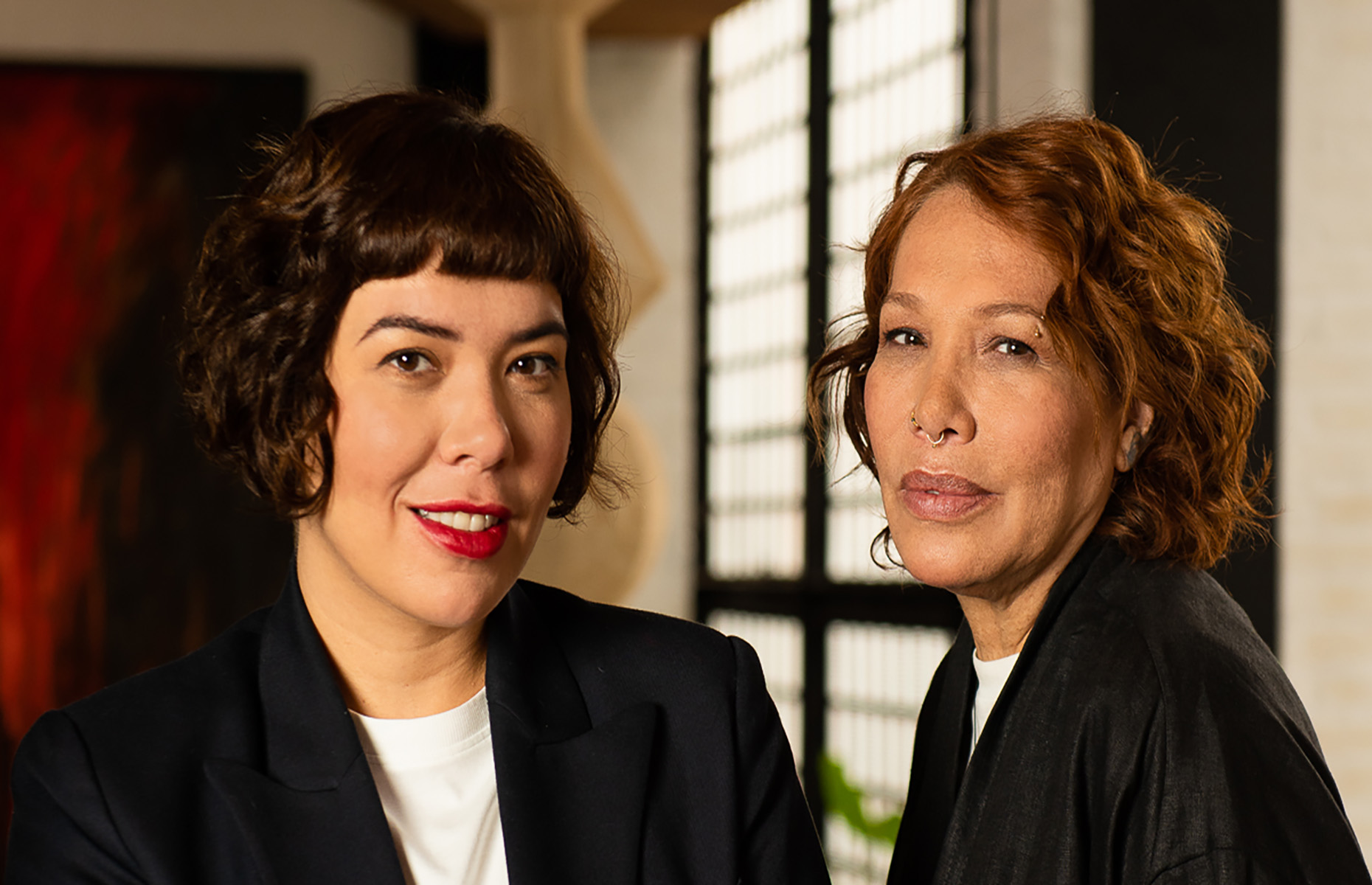
Laura Hernandez and Leonor Espinosa (Photo by: Felipe Pardo, @felipepardo)
Thirty years ago, when Espinosa was beginning her career, women did not lead professional kitchens, and very few still do now. Even though women have been historically tasked with cooking and feeding their families, they are often not seen as equally capable to lead a restaurant team or perform the physical duties that working in a professional kitchen sometimes demands. Espinosa believes awards like this contribute to a more equal workforce where women are recognised for the work they do.
Cooking is a political act
We can’t separate the food of a nation from its politics, environmental issues, education and identity. Espinosa’s award is a step forward for Colombia, but it is just the beginning.
The award-winning chef believes we need more cooks around the country to showcase Colombian food and for the Government to be more open-minded and supportive around the access and uses of traditionally made ingredients. And, most importantly, for locals to become proud of their food and support the restaurateurs who are dedicating their work to the future of Colombian cuisine. I, for one, am excited to witness this evolution.
Chef Leonor Espinosa received The World’s Best Female Chef accolade on 18th July at the awards ceremony for The World's 50 Best Restaurants 2022 in London, sponsored by S. Pellegrino & Acqua Panna.
Comments
Do you want to comment on this article? You need to be signed in for this feature